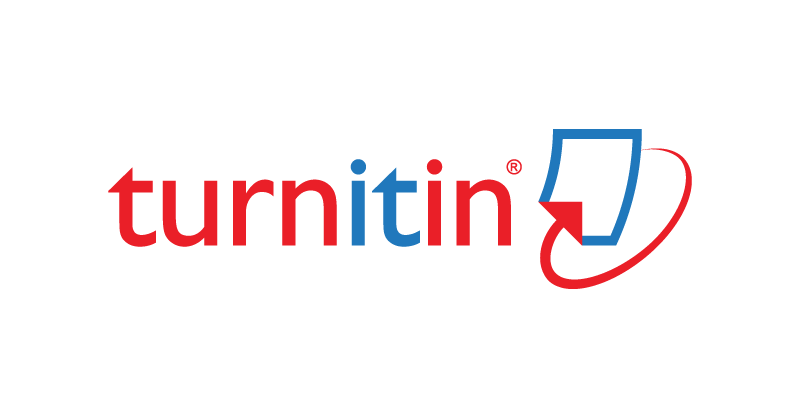Enhancing Employer Brand Hotel Industry Through Knowledge-Based Recruitment and Employee Value Propositions
Abstract
This study investigates the role of knowledge-based recruitment, a component of knowledge-based human resource management (K-B HRM), in mediating the relationship between the value proposition of key employees and employer branding. This research uses the PLS-SEM method and purposive sampling to survey employees working in 3- to 5-star hotels in West Java and Jakarta. The results reveal that the value proposition of key employees has a positive and significant impact on both knowledge-based recruitment and employer branding. However, it is observed that knowledge-based recruitment only has a positive but insignificant effect on employer brand, indicating that it does not significantly mediate the relationship between key employees' value proposition and employer branding. These findings offer valuable insights to hotel companies in their efforts to enhance their reputation and image as sought-after workplaces for top talent within the hotel industry. Furthermore, these findings support the Indonesian government's initiatives to foster the development of human resources in the tourism sector. By strategically optimizing key employees' value propositions and diligently implementing knowledge-based recruitment practices, hotel companies have the remarkable opportunity to enhance their employer brand significantly.
Full Text:
PDFReferences
Ahmad, A., Khan, M. N., & Haque, M. A. (2020). Employer Branding Aids in Enhancing Employee Attraction and Retention. Journal of Asia-Pacific Business, 21(1), 27–38. https://doi.org/10.1080/10599231.2020.1708231
Albrecht, S. L., Bakker, A. B., Gruman, J. A., Macey, W. H., & Saks, A. M. (2015). Employee engagement, human resource management practices and competitive advantage: An integrated approach. In Journal of Organizational Effectiveness (Vol. 2, Issue 1, pp. 7–35). Emerald Group Holdings Ltd. https://doi.org/10.1108/JOEPP-08-2014-0042
Alves, P., Santos, V., Reis, I., Martinho, F., Martinho, D., Sampaio, M. C., Sousa, M. J., & Au-Yong-oliveira, M. (2020). Strategic talent management: The impact of employer branding on the affective commitment of employees. Sustainability (Switzerland), 12(23), 1–21. https://doi.org/10.3390/su12239993
Arasanmi, C. N., & Krishna, A. (2019). Employer branding: perceived organisational support and employee retention – the mediating role of organisational commitment. Industrial and Commercial Training, 51(3), 174–183. https://doi.org/10.1108/ICT-10-2018-0086
Backhaus, K. (2016). Employer Branding Revisited. Organization Management Journal, 13(4), 193–201. https://doi.org/10.1080/15416518.2016.1245128
Benraïss-Noailles, L., & Viot, C. (2021). Employer brand equity effects on employees well-being and loyalty. Journal of Business Research, 126, 605–613. https://doi.org/https://doi.org/10.1016/j.jbusres.2020.02.002
Biswas, M. K., & Suar, D. (2016). Antecedents and Consequences of Employer Branding. Journal of Business Ethics, 136(1), 57–72. https://doi.org/10.1007/s10551-014-2502-3
Connelly, C. E., Fieseler, C., Černe, M., Giessner, S. R., & Wong, S. I. (2021). Working in the digitized economy: HRM theory & practice. Human Resource Management Review, 31(1), 1–7. https://doi.org/10.1016/j.hrmr.2020.100762
Dabirian, A., Paschen, J., & Kietzmann, J. (2019). Employer Branding: Understanding Employer Attractiveness of IT Companies. IT Professional, 21(1), 82–89. https://doi.org/10.1109/MITP.2018.2876980
Ek Styvén, M., Näppä, A., Mariani, M., & Nataraajan, R. (2022). Employee perceptions of employers' creativity and innovation: Implications for employer attractiveness and branding in tourism and hospitality. Journal of Business Research, 141, 290–298. https://doi.org/10.1016/j.jbusres.2021.12.038
Enad Al-Qaralleh, R., & Atan, T. (2022). Impact of knowledge-based HRM, business analytics and agility on innovative performance: linear and FsQCA findings from the hotel industry. Kybernetes, 51(1), 423–441. https://doi.org/10.1108/K-10-2020-0684
Figurska, I., & Matuska, E. (2013). Human Resources Management & Ergonomics Volume VII Employer Branding as a Human Resources Management Strategy. Human Resources Management & Ergonomics, VII.
Ghani, B., Zada, M., Memon, K. R., Ullah, R., Khattak, A., Han, H., Ariza-Montes, A., & Araya-Castillo, L. (2022). Challenges and Strategies for Employee Retention in the Hospitality Industry: A Review. In Sustainability (Switzerland) (Vol. 14, Issue 5). MDPI. https://doi.org/10.3390/su14052885
Ghozali, I., & Latan, H. (2015). PLS Konsep, Teknik dan Aplikasi dengan SmartPLS. Universitas Diponegoro.
Ha, N. M., Luan, N. V., & Trung, N. M. (2021). Employer attractiveness: Measurement scale development and validation. Economics and Business Administration, 11(1), 3–18. https://doi.org/10.46223/HCMCOUJS.econ.en.11.1.1367.2021
Hair, J. F. J., Hult, G. T. M., Ringle, C. M., & Sarstedt, M. (2017). Partial Least Squares Structural Equation Modeling (PLS-SEM). In Practical Assessment, Research and Evaluation. SAGE Publications.
Hairani Idrus, S., Akib, H., . A., & . R. (2023). The Development of Sustainable Tourism in Kendari City, Indonesia, During the COVID-19 Pandemic Based on the Local Wisdom Approach. KnE Social Sciences. https://doi.org/10.18502/kss.v8i2.12752
Henseler, J., Dijkstra, T. K., Sarstedt, M., Ringle, C. M.,
Diamantopoulos, A., Straub, D. W., Ketchen, D. J., Hair, J. F., Hult, G. T. M., & Calantone, R. J. (2014). Common Beliefs and Reality About PLS: Comments on Rönkkö and Evermann (2013). Organizational Research Methods, 17(2), 182–209. https://doi.org/10.1177/1094428114526928
Huseynova, A. (2022). Sustainable Human Resource Management Practices Impacting Employer Branding. Cognitive Sustainability, 1(2). https://doi.org/10.55343/cogsust.15
Hussain, I., Mu, S., Mohiuddin, M., Danish, R. Q., & Sair, S. A. (2020). Effects of sustainable brand equity and marketing innovation on market performance in hospitality industry: Mediating effects of sustainable competitive advantage. Sustainability (Switzerland), 12(7). https://doi.org/10.3390/su12072939
Inkinen, H. T., Kianto, A., & Vanhala, M. (2015). Knowledge management practices and innovation performance in Finland. Baltic Journal of Management, 10(4), 432–455. https://doi.org/10.1108/BJM-10-2014-0178
Itam, U., Misra, S., & Anjum, H. (2020). HRD indicators and branding practices: a viewpoint on the employer brand building process. European Journal of Training and Development, 44(6–7), 675–694. https://doi.org/10.1108/EJTD-05-2019-0072
Japutra, A., & Situmorang, R. (2021). The repercussions and challenges of COVID-19 in the hotel industry: Potential strategies from a case study of Indonesia. International Journal of Hospitality Management, 95, 102890. https://doi.org/https://doi.org/10.1016/j.ijhm.2021.102890
Karman, A. (2020). Understanding sustainable human resource management-organizational value linkages: The strength of the SHRM system. Human Systems Management, 39(1), 105–115. https://doi.org/10.3233/HSM-190602
Kashive, N., Khanna, V. T., & Bharthi, M. N. (2020). Employer branding through crowdsourcing: understanding the sentiments of employees. Journal of Indian Business Research, 12(1), 93–111. https://doi.org/10.1108/JIBR-09-2019-0276
Kaur, P., Malhotra, K., & Sharma, S. K. (2020). Employer Branding and Organisational Citizenship Behaviour: The Mediating Role of Job Satisfaction. Asia-Pacific Journal of Management Research and Innovation, 16(2), 122–131. https://doi.org/10.1177/2319510x20931716
Khan, I., Garg, R. J., & Rahman, Z. (2015). Customer Service Experience in Hotel Operations: An Empirical Analysis. Procedia - Social and Behavioral Sciences, 189, 266–274. https://doi.org/10.1016/j.sbspro.2015.03.222
Kianto, A., Sáenz, J., & Aramburu, N. (2017). Knowledge-based human resource management practices, intellectual capital and innovation. Journal of Business Research, 81, 11–20. https://doi.org/https://doi.org/10.1016/j.jbusres.2017.07.018
Küpper, D. M., Klein, K., & Völckner, F. (2021). Gamifying employer branding: An integrating framework and research propositions for a new HRM approach in the digitized economy. Human Resource Management Review, 31(1). https://doi.org/10.1016/j.hrmr.2019.04.002
Kwong, K., & Wong, K. (2013). Partial Least Squares Structural Equation Modeling (PLS-SEM) Techniques Using SmartPLS. Marketing Bulletin, 24(1), 1–32.
Majumdar, R. (2021). Surviving and growing in the post-Covid world: the case of Indian hotels. Worldwide Hospitality and Tourism Themes, 13(5), 584–598. https://doi.org/10.1108/WHATT-05-2021-0064
Nazish, A., Mehboob, S. A. A., Haider, S., & Khan, A. (2022). Exploring the role of human resource management practices in the nexus of internal and external employer branding. Middle East Journal of Management, 10(1), 51–71. https://doi.org/10.1504/MEJM.2023.127767
Noopur, N., & Dhar, R. L. (2020). Knowledge-based HRM practices as an antecedent to service innovative behavior. Benchmarking: An International Journal, 27(1), 41–58. https://doi.org/10.1108/BIJ-10-2018-0329
Nugraha, A. S., Yusup, M., & Juhara, D. (2018). Pengaruh Pertumbuhan Perusahaan Dan Profitabilitas Terhadap Nilai Perusahaan Perusahaan Sektor Property Yang Terdaftar Di Bursa Efek Indonesia Periode 2012-2016. Bisnis Dan Iptek, 11(2).
Rybaczewska, M., Sparks, L., & Sułkowski, Ł. (2020). Consumers' purchase decisions and employer image. Journal of Retailing and Consumer Services, 55(April), 0–7. https://doi.org/10.1016/j.jretconser.2020.102123
Santiago, J. (2019). The relationship between brand attractiveness and the intent to apply for a job: A millennials' perspective. European Journal of Management and Business Economics, 28(2), 142–157. https://doi.org/10.1108/EJMBE-12-2018-0136
Sarstedt, M., Ringle, C. M., & Hair, J. F. (2017). Partial Least Squares Structural Equation Modeling. Handbook of Market Research, September. https://doi.org/10.1007/978-3-319-05542-8
Tkalac Verčič, A., & Sinčić Ćorić, D. (2018). The relationship between reputation, employer branding and corporate social responsibility. Public Relations Review, 44(4), 444–452. https://doi.org/10.1016/j.pubrev.2018.06.005
Zaware, N. (2019). Effective Human Resource Management with Employee Value Proposition. SSRN Electronic Journal, 8(9). https://doi.org/10.2139/ssrn.3819178
DOI: https://doi.org/10.31294/widyacipta.v7i2.16260
Copyright (c) 2023 Tri Darawanti, Parlagutan Silitonga, Pamuji Raharjo

This work is licensed under a Creative Commons Attribution-ShareAlike 4.0 International License.
Index by:
Published LPPM Universitas Bina Sarana Informatika with supported by Relawan Jurnal Indonesia
Jl. Kramat Raya No.98, Kwitang, Kec. Senen, Jakarta Pusat, DKI Jakarta 10450, Indonesia

This work is licensed under a Creative Commons Attribution-ShareAlike 4.0 International License





